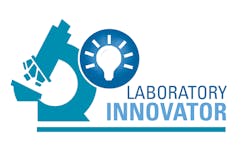Much of your career has been in the pharmaceutical field. What appealed to you about the clinical laboratory field?
Any upcoming changes at CLSI you can share with us?
The COVID-19 pandemic has dramatically impacted the clinical laboratory landscape. We now fully understand how important it is that laboratories around the world are operating with quality standards and access to needed guidance. And we have seen non-traditional providers such as pharmacies and mail-order chains step up and step into the clinical laboratory space across the world. Watch for CLSI to strengthen our global reach and guidance for point-of-care testing and non-traditional laboratories.
Are there volunteer characteristics CLSI is currently looking for? What is the average volunteer commitment?
It’s important to know that voices from all experience levels are critical for standards development. The contributions that an end user, educator, regulatory expert, or student make bring a well-rounded perspective to the content and form of a standard or guideline. We’re grateful for any amount of time that a volunteer can contribute.
Many of our readers work in labs that have to meet accreditation requirements from organizations such as The Joint Commission and the College of American Pathologists (CAP). Could you explain how CLSI helps labs successfully complete these reviews by accrediting organizations?
Most of CLSI’s standards contain information that is critical for laboratories to meet their accreditation requirements, and many were expressly written for that purpose. We have prepared guides, called Crosswalks, that map the accreditation requirements to the relevant resources and guidance available from CLSI. These crosswalks are available for free on our website
(https://clsi.org/standards/products/crosswalks/accreditation-crosswalks/), and they take the guesswork out of finding the CLSI standard that will help the lab prepare for accreditation.
We love a statement you have on your LinkedIn bio: “I believe in living our best lives, in part, through the missions of the organizations that we support.” Could you please elaborate on what that means to you?
As the world shifts to a distributed (remote) workforce, we have the opportunity to rethink how we embrace our work in our lives. We can help each other to find meaning and passion in our work and incorporate it into our lives in the ways that make us most productive—without sacrificing the things that make us whole. Leaders can now stop worrying about workplace culture and turn their attention to inspiration and helping people to see the impact they are making. Working with CLSI, either as staff or as a volunteer, has an incredible impact on millions of people around the world every day.
About the Author
Christina Wichmann
Editor-in-Chief
Editor-in-Chief Medical Laboratory Observer | Endeavor Business Media


